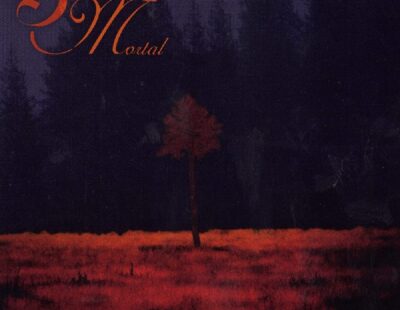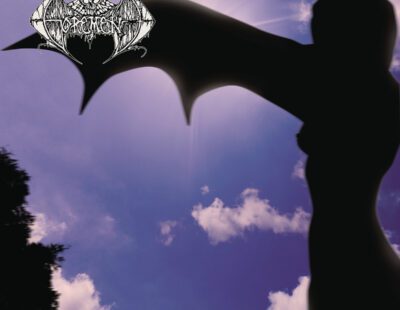
Destroyer of Worlds
The Making of Scorn’s Evanescence
Mick Harris has revisited Scorn as a solo electronic music project throughout the years, but 1994’s Evanescence marked the end of a combustible partnership with multi-instrumentalist and vocalist Nicholas Bullen. Of course, Harris and Bullen had some history as two-thirds of the short-lived Napalm Death lineup represented on Side A of Scum. Both had a shared interest in punk rock, industrial, dub and avant-garde art, all of which filtered into two full-lengths of minimalist music (1992’s Vae Solis and 1993’s Colossus) before reaching the apotheosis of that sound on the more polished Evanescence.
For Bullen and Harris, the continued quest for extremity on Evanescence meant slowing things down, not speeding them up. The sound of Scorn’s third and most fully realized album is best described as “narcotic,” which is evident from the jump on opener “Silver Rain Fell.” On Evanescence, the pair explore tension and release with cascading patterns and trance-like rhythms. The album also marked the introduction of James Plotkin as a member of Scorn, playing guitar and guitar synth; he and Harris had first met through tape-trading and continued to collaborate in subsequent projects after the break-up of this version in Scorn.
Almost 30 years after it was recorded, Evanescence still sounds newly minted, but it admittedly isn’t the easiest album to get into—it can be as cold and unwelcoming as the city that birthed it. Echoes of Birmingham’s roots as a key factory site during the Industrial Revolution can be heard in the mechanical noises of “Automata,” which also channels the Bhagavad Gita and J. Robert Oppenheimer. The content of Bullen’s lyrics take on an extra-sinister dimension with his vocal contortions. On Evanescence, they offer Scorn’s ripest avenue for exploration; tracks like “Days Passed” and “Exodus” seem to presage the band’s impending demise.
1994 was an absolutely bonkers year for electronic and ambient music, including Portishead’s Dummy, Massive Attack’s Protection and Aphex Twin’s Selected Ambient Works Volume II, not to mention early works by Tricky, Autechre and Roni Size. Despite Harris, Bullen and Plotkin’s firm roots in grindcore, Evanescence is more closely aligned with artists like those and the more hip-hop-influenced, breakbeat-heavy scene later showcased on the Mo’ Wax label. This connection was further underscored/explored on 1995’s Ellipsis, which contained a series of Evanescence remixes by the likes of Meat Beat Manifesto and Scanner.
What might have happened if circumstances allowed for Bullen, Harris and Plotkin to continue as Scorn? All three are mercurial personalities and guided by their own aesthetics. Harris is now back to recording under the Scorn moniker, and sometimes works out his inner demons in Lull and Fret. Bullen was off the radar for a long time, but has applied himself to the field of sound art and is now making some of the best music of his career with Rainbow Grave. And Plotkin has continued to push the envelope as a solo artist, and as the architect of influential acts like Khanate and Phantomsmasher. Together, they wrote one of electronic music’s darkest and most uncomfortable epitaphs, so we’re chuffed (and not at all weakened) to welcome Evanescence to the Hall of Fame.
Need more classic Scorn? To read the entire seven-page story, featuring interviews with the members who performed on Evanescence, purchase the print issue from our store, or digitally via our app for iPhone/iPad or Android.




